Madras Week | In the the bajjis, murukku sandwiches and fish fry of Chennai, we trust
Atlappam — A seaside treat
It is a dish unlike any other: a little like appam, but baked; a little like pizza, but sweet. Atlappam, a golden-yellow delicacy made of a batter of raw rice, split Bengal gram, semolina, eggs, and sugar, is a Kasimedu specialty. It is available only at the fish market there, that too for just a few hours in the morning. “We sell it from 6am onwards on Sundays and Wednesdays when there is crowd at the market,” says K Arokia Mary from Singaravel Nagar in Kasimedu.
The 63-year-old sells atlappam and kambankoozh (pearl millet porridge), alongside her brother’s daughter-in-law S Suba near the prawns market at Kasimedu. Atlappam is baked in aluminium pans in an arrangement of clay pots over firewood. “We get dry rice flour ground at a neighbourhood mill the night before,” explains Mary, adding that to this, they add semolina, sugar, roasted and ground kadalai paruppu, oil, powdered cardamom and fennel seeds. Egg is added right before it is baked, and the atlappam is garnished with coconut slivers, cashews and raisins. “The batter is mixed the previous night to let the ingredients soak,” she says.
CHENNAI, TAMIL NADU, 21/08/2024 : Kasimedu’s version of a pizza is ‘atlappam’. Photo : B. Jothi Ramalingam / The Hindu
| Photo Credit:
JOTHI RAMALINGAM B
A piece costs ₹60 and can be shared by two people. “One can never have a full atlappam, no matter how big one’s appetite is,” chuckles Mary. “It can be quite heavy since it has eggs and dried fruits,” she points out. Atlappam is a favourite among the fishermen, who pack one on their way to work at sea. “People who come to buy fish at the market too buy from us,” says Mary.
CHENNAI, TAMIL NADU, 21/08/2024 : Kasimedu’s version of a pizza is ‘atlappam’. Photo : B. Jothi Ramalingam / The Hindu
| Photo Credit:
JOTHI RAMALINGAM B
Mary does not know where the recipe originated. “All I know is that it has been passed down generations,” she says, “We’ve been selling it for several decades; back then, a piece would cost ₹10.” Atlappam is rarely made at home. “It’s a lot of work,” says Mary. “We are happy to sell it, and treat ourselves to a piece once in a while.”
– Akila Kannadasan
Fish fry by the waves
Tamil Nadu, Chennai, 03/08/2023/: ( METRO PLUS ) A view of Pooja fish fry at Bessant Nagar Beach, in Chennai. Photo: Ravindran R/The Hindu
| Photo Credit:
RAVINDRAN R
For tourists, tasting fried fish at one of the beaches in Chennai is a must-do. While Sundari akka was the pioneer who set up her food cart (Kaanavur Unavagam) right on the beachfront, two decades ago, many such shops sprang up eventually. Today, the Foreshore Estate’s Loop Road, is dotted with food stalls set up by the fisherfolk within their homes or on a cart, selling a wide range of sea food delicacies.
Most popular among Chennai’s fried fish is the nethili. A plate of nethili (anchovies) fry is priced at ₹100 in most of these stalls. Ayala (Indian mackerel) and sankara (Japanese thread fin) are pocket-friendly as they are sold between ₹40 to ̥₹60 depending on size. Big fish varieties (priced between ₹100 and ₹800) such as seela (barracuda), paarai (trevally), koduva (barramundi), vaaval (pomfret) and nei meen (cobia) are available in its entirety. It is fried on demand.
Tamil Nadu, Chennai, 03/08/2023/: ( METRO PLUS ) A view of Pooja fish fry at Bessant Nagar Beach, in Chennai. Photo: Ravindran R/The Hindu
| Photo Credit:
RAVINDRAN R
The fish are cleaned thoroughly by the fisherwomen, and displayed on a banana leaf after marination. Customers can choose their fish, after which it is shallow-fried in refined oil and served. The stall owners make their own spices which they use for marination. Tamarind pulp or lemon juice is added to the mix of turmeric power, salt and chili powder for zest. Once the fish is fried, they sprinkle a spice mix of chilli, fennel and pepper. A trip to Chennai is never complete without a visit to the beach. Stalls selling ready-to-fry fish on Marina, Foreshore Estate’s Loop Road, Besant Nagar beach and Palavakkam Beach, only add value to these visits..
Chitradeepa Anantharaman
Kutty Samosa — A crispy answer to mid-day hunger pangs
Samosa
In Chennai, kutty samosas have become an irresistible part of the city’s snacking culture. Picture this: you are outside a bustling tea shop, with a hot glass of chai, grumbling with colleagues about that one never-ending assignment. Suddenly, the craving hits — for something crunchy, something savoury. And there they are, piled on a tray: golden triangles of pure temptation. You know the drill — no one ever stops at just one.
Abdul Rahman, who runs a samosa stall in Triplicane that’s been in existence since the 1960s in Chennai.
| Photo Credit:
R. Ravindran.
This bite-sized snack is a miniature take on the classic samosa, ditching the spiced potato filling for a mouth-watering mix of caramelised onions. Deep-fried to perfection, they are a staple in tea shops, bakeries, school canteens, and even in trains. What makes them so addictive? You can pop a whole one in your mouth for a single, satisfying crunch, and unlike their larger cousins, these minis are crunchy all over — not just at the corners.
Kutty samosas are usually sold to shops frozen, ready to be freshly fried for the day’s crowds. With thousands of these little bites flying off the shelves daily, centralised kitchens and wholesalers keep the supply steady.
Priced as low as ₹10 for four pieces, these samosas come in all kinds of packaging, from chic boxes by brands like The Samosa Factory, Tea Bon or the many chai start ups, to the classic newspaper cones and butter paper bags from your neighbourhood bakery. For a festive twist, there are also versions stuffed with mutton keema, especially popular during Eid. Though not originally from Chennai, kutty samosas have certainly made their mark, becoming a beloved part of the city.
Ananyaa Desikan
Murukku sandwich — Between two slices
The story of Arati Sheth and her husband Harshad A Sheth’s murukku sandwich is a culinary lore that needs to be discussed more. It is where this unique Chennai snacks was conceptualised.
“A supplier walked into the shop and told my husband that it was a tough couple of business days as nobody was buying his murukku. He [Harshad] offered to buy the lot that day and decided to experiment with the same ingredients we used in the sandwich. We added onion, tomato and potato with a layer of green chutney on the top. To do some research about its taste, he distributed the murukku sandwiches for free on the first day. It was a hit. We haven’t changed the recipe till date,” Arati says.
Over the years, this recipe has been replicated in several sandwich shops, becoming a bit among college and school students, particularly in areas with sizeable North Indian population. This is especially because the dish continues to be affordable, easy to eat and is often accompanied by cheese. Only the taste of the spicy chutney varies.
The dish consists a bright green chutney of mint, coriander and peanuts; two murukkus to add crunch; a mountain of shaved processed cheese and a smattering of vegetables.
Murukku cheese sandwich is usually priced at ₹70 for the regular version and ₹100 with cheese. Jain versions of the dish swap onions and potatoes for cucumber.
The colonisers deem their tea time with plates sandwiches and scones precious. This is India’s sandwich mutiny.
Sanjana Ganesh
A bajji a day
A Bajji stall on Marina beach
| Photo Credit:
GANESAN V
On the sands of Marina beach not too far away from the MGR Memorial Arch, there are lights twinkling as far as the eye can see, towards the sea. There are rows and rows of shops selling all sorts of snacks — you can take your pick from spring potatoes, pop corn, omelettes, sandwiches, ice creams and more.
Despite the proliferation of a variety of snacks, it seems as though Marina Beach can never have enough bajji stalls. Newer ones spring up, serving the much loved snack to families, couples, large groups of teens, or even evening walkers and joggers cheating on their diets.
The bajji stall we head to, a little away from all this din, is just preparing for the evening ahead. ASY bajji stall is a one-woman show — Valli does all the cooking, plating, cleaning, and accounts.
“I started the stall just four months ago. Things were hard at home and I needed the money,” she says, dropping potato slices dipped in batter, into hot oil. There are hundreds of shops like hers, on the beaches of Chennai. While fresh fish fry might be a true seaside delicacy, the bajjis have thrived over the years. Valli too finds it hard to pinpoint the number of bajji stalls that currently exist on the shores of the Marina beach.
Most stalls like hers have a standard menu — potato, onion, raw banana, chilli, and cauliflower bajjis served with a spicy red chutney, each plate priced at ₹ 40 or more. Chilli bajjis, that aren’t very spicy, are their main draw, as is evident from the strings of big, light green chillies that are hung outside these stalls. The vegetables are expertly sliced in advance, and kept ready for the evening rush, to be dipped and fried in a batter of gram and rice flour. The chutney prepared at home beforehand, is brought in a compact steel container for service.
While the cauliflower bajjis take longer to make, often leaving customers impatient, Valli says she and everyone else here makes the bajjis fresh. Hot bajjis fresh from frying after all, are very important to complete the beach experience — complete with strong winds, sand flying around, and a dog or two expectantly waiting for a tidbit
S Poorvaja
Images are for reference only.Images and contents gathered automatic from google or 3rd party sources.All rights on the images and contents are with their legal original owners.


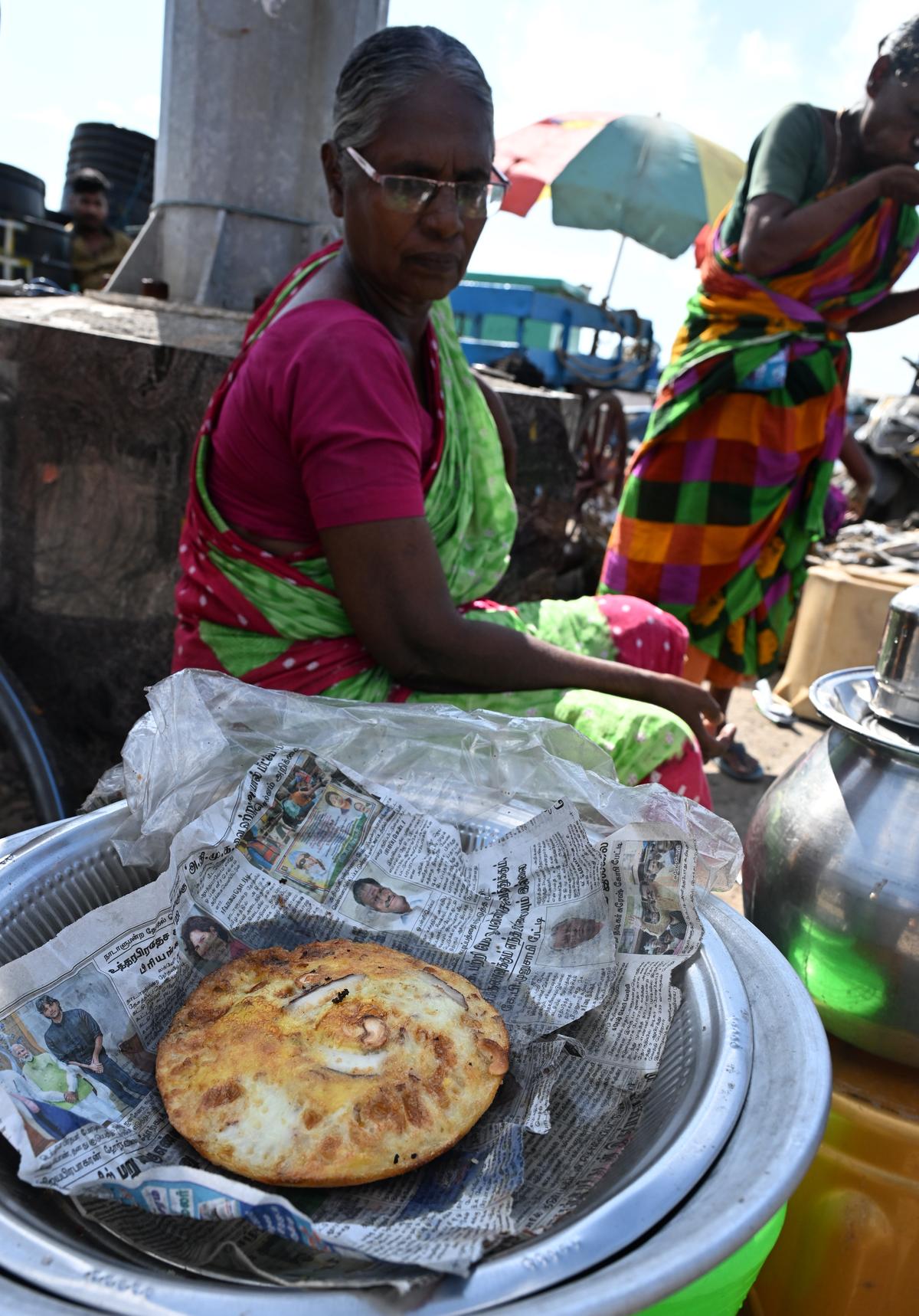
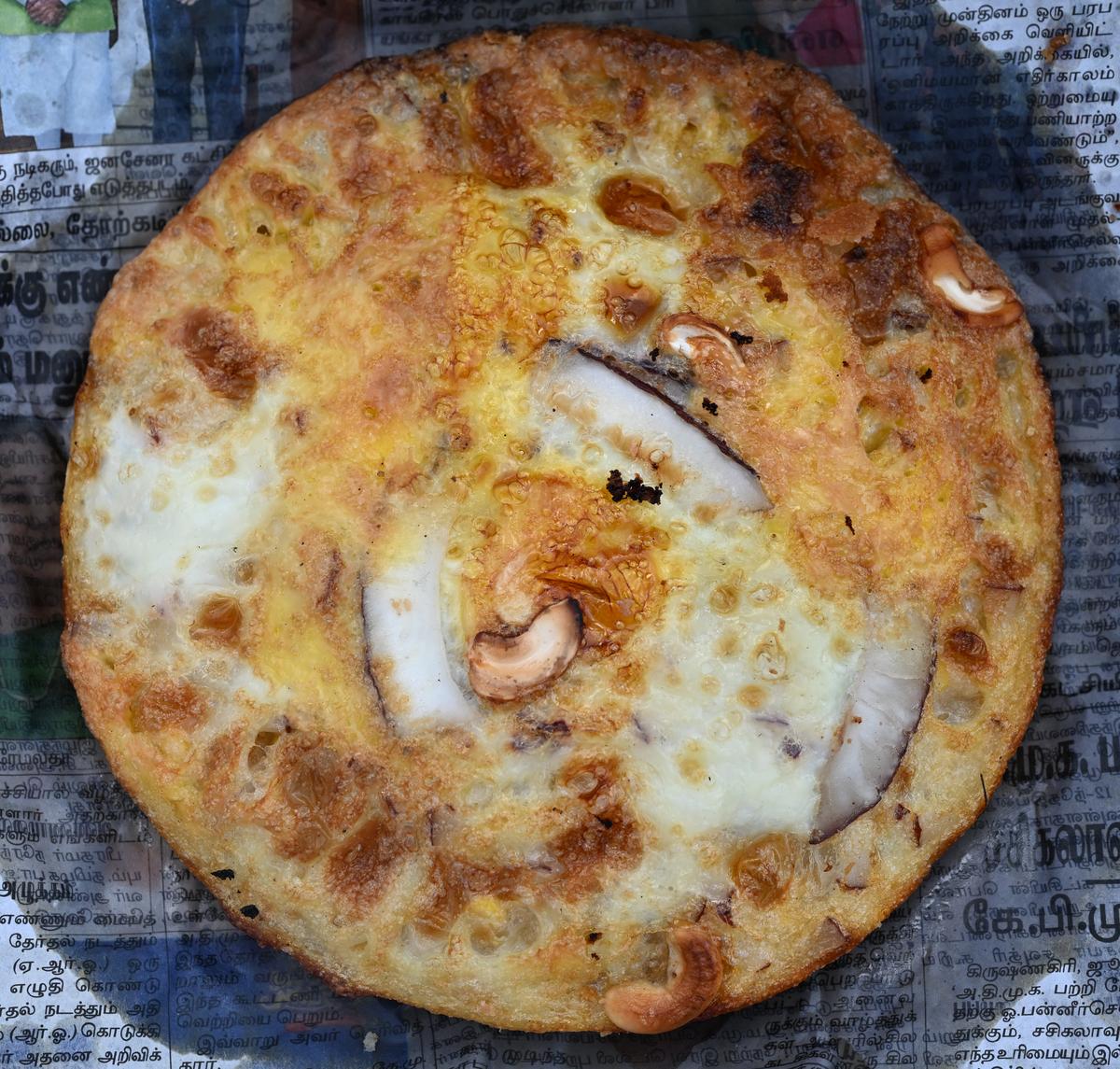
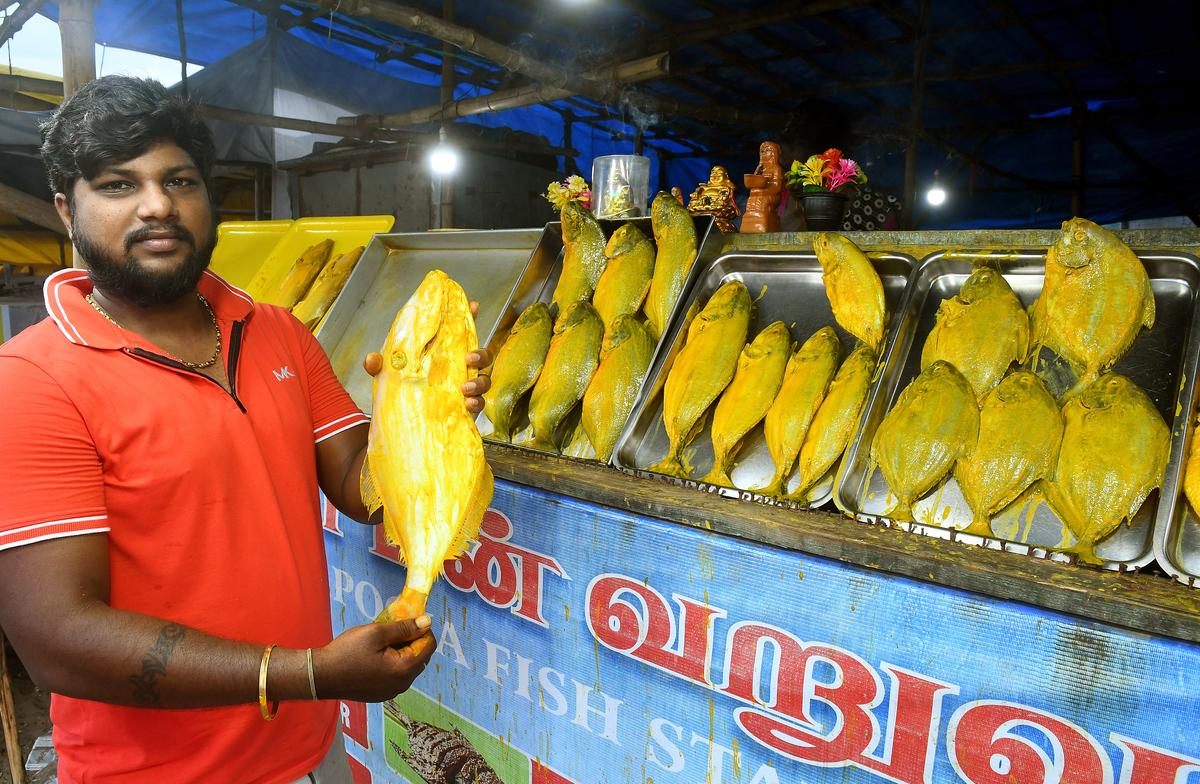
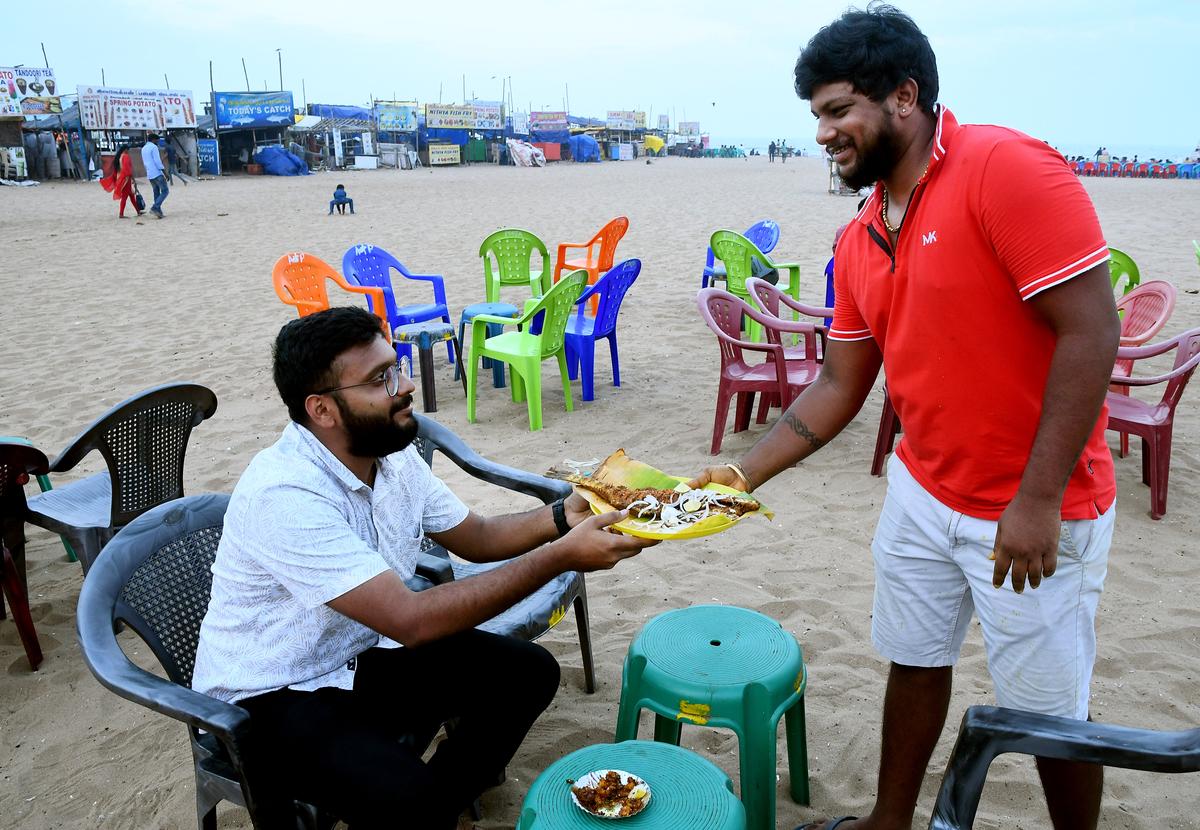
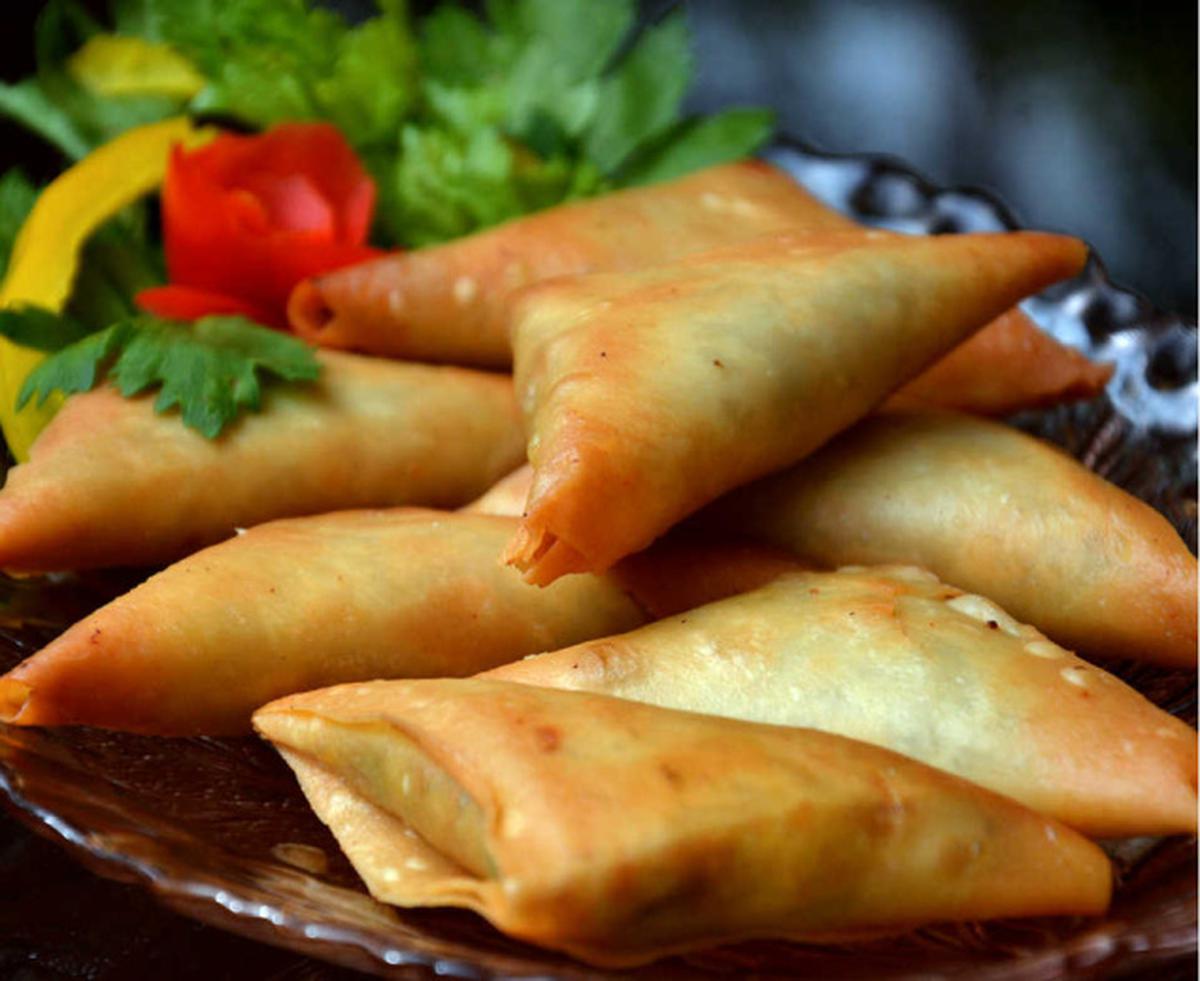
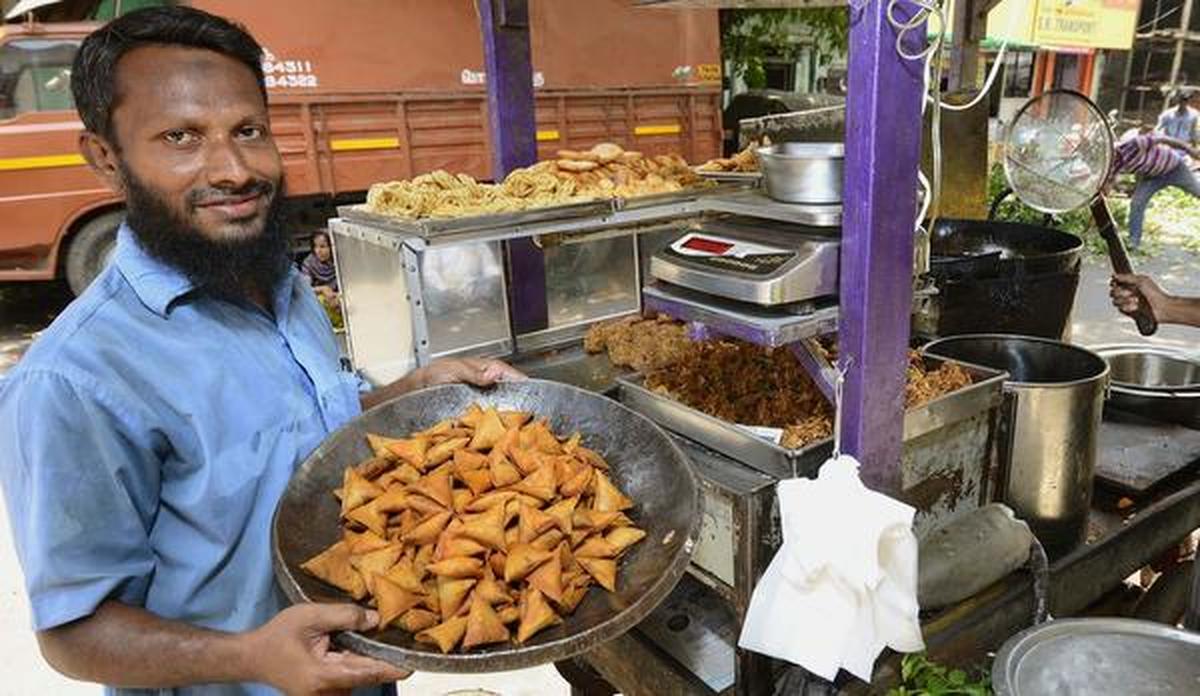
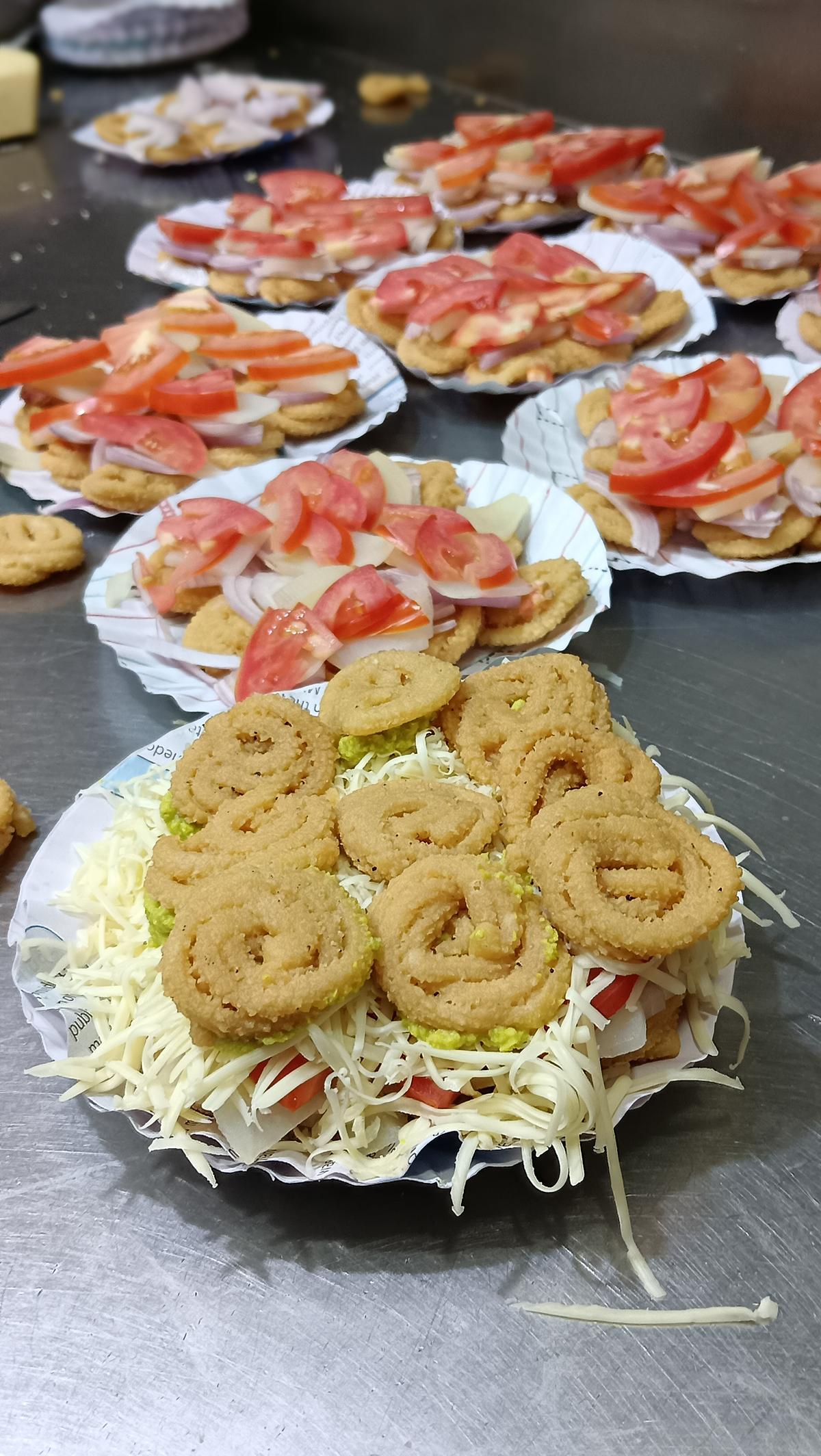
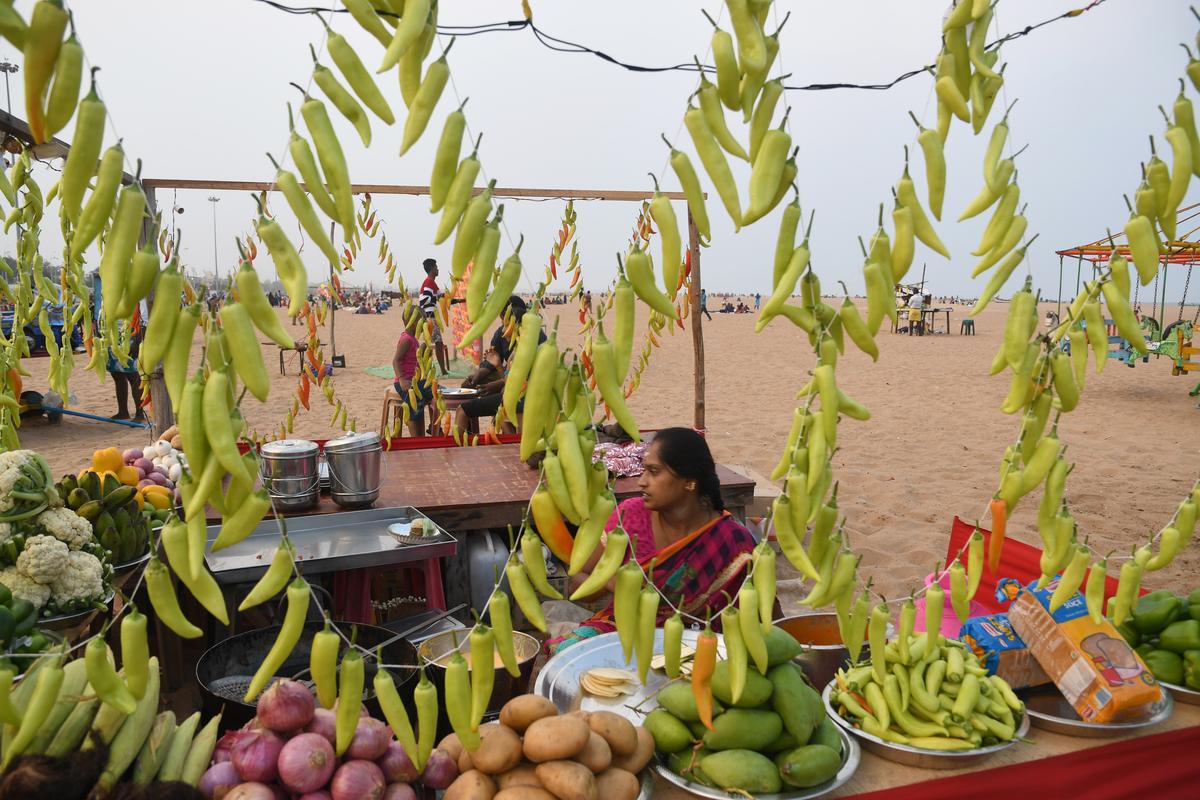
Comments are closed, but trackbacks and pingbacks are open.